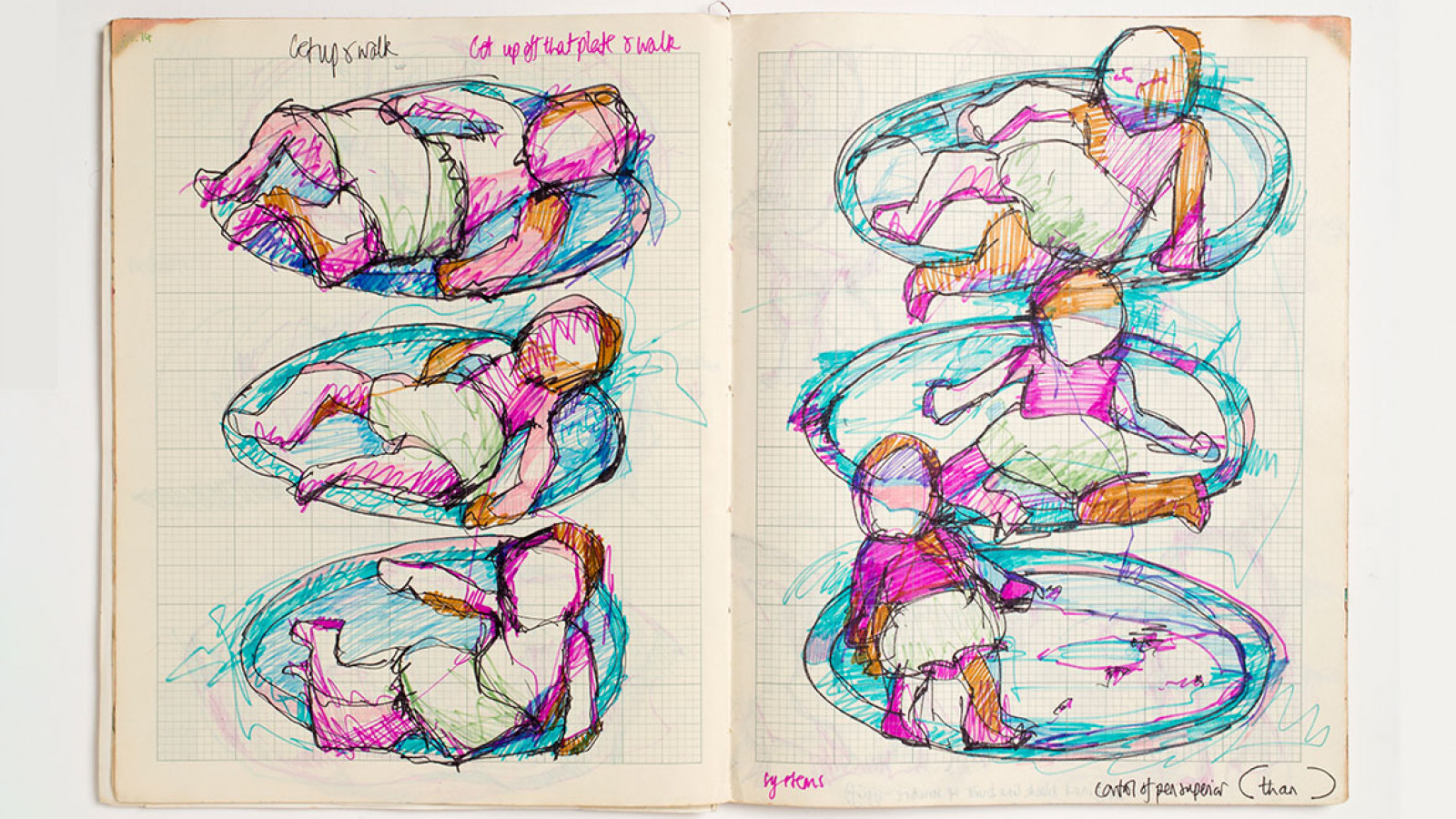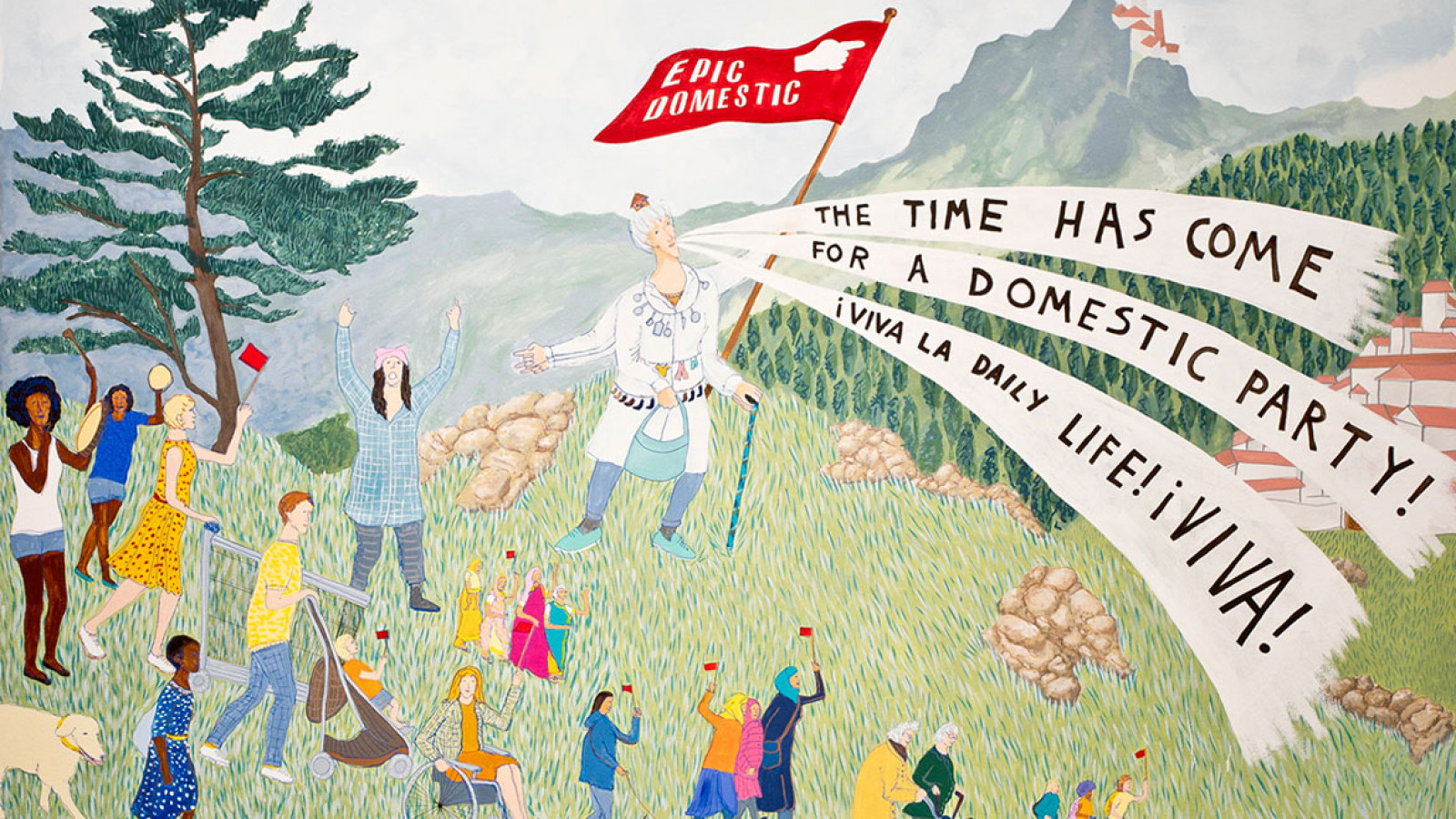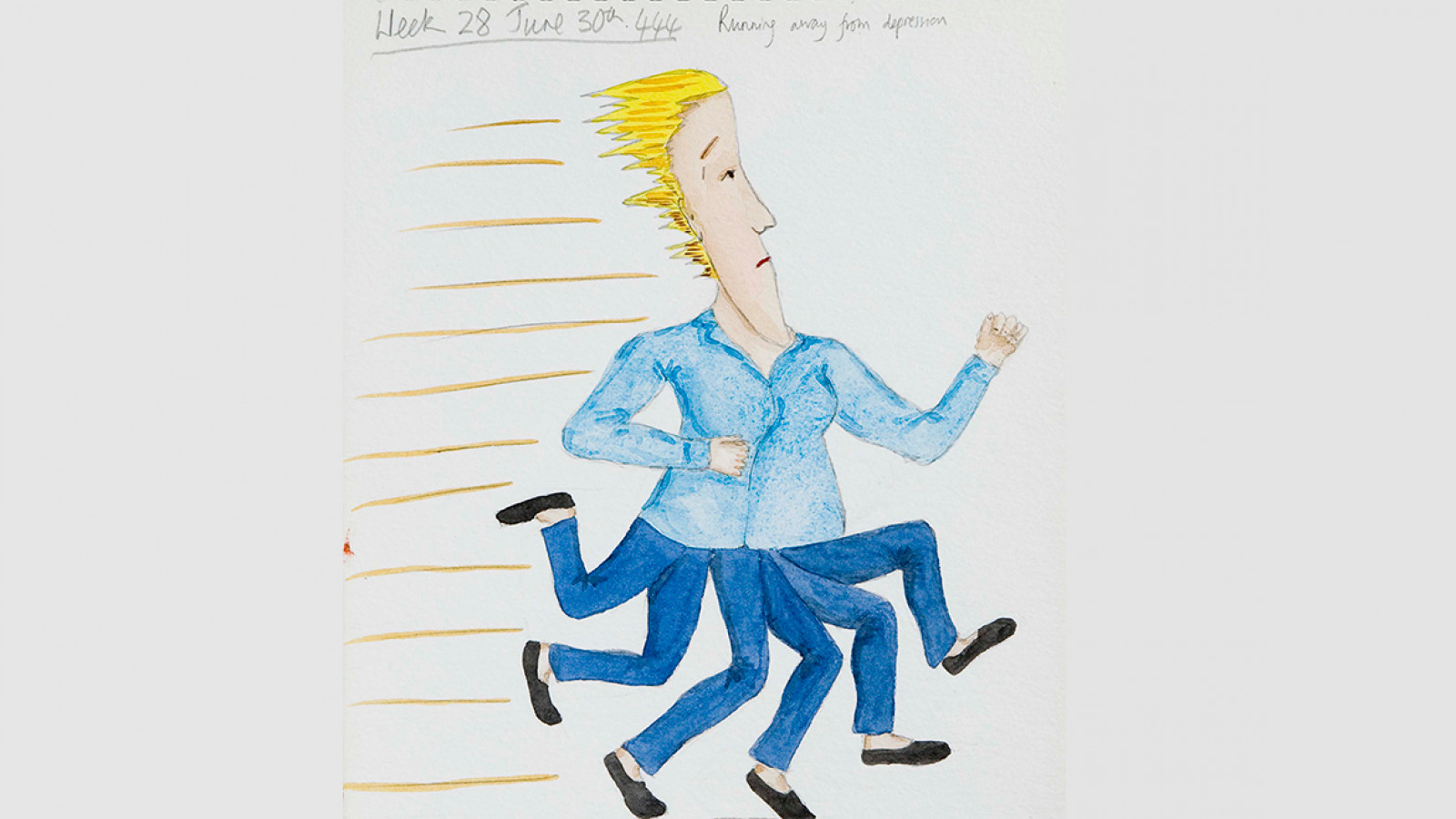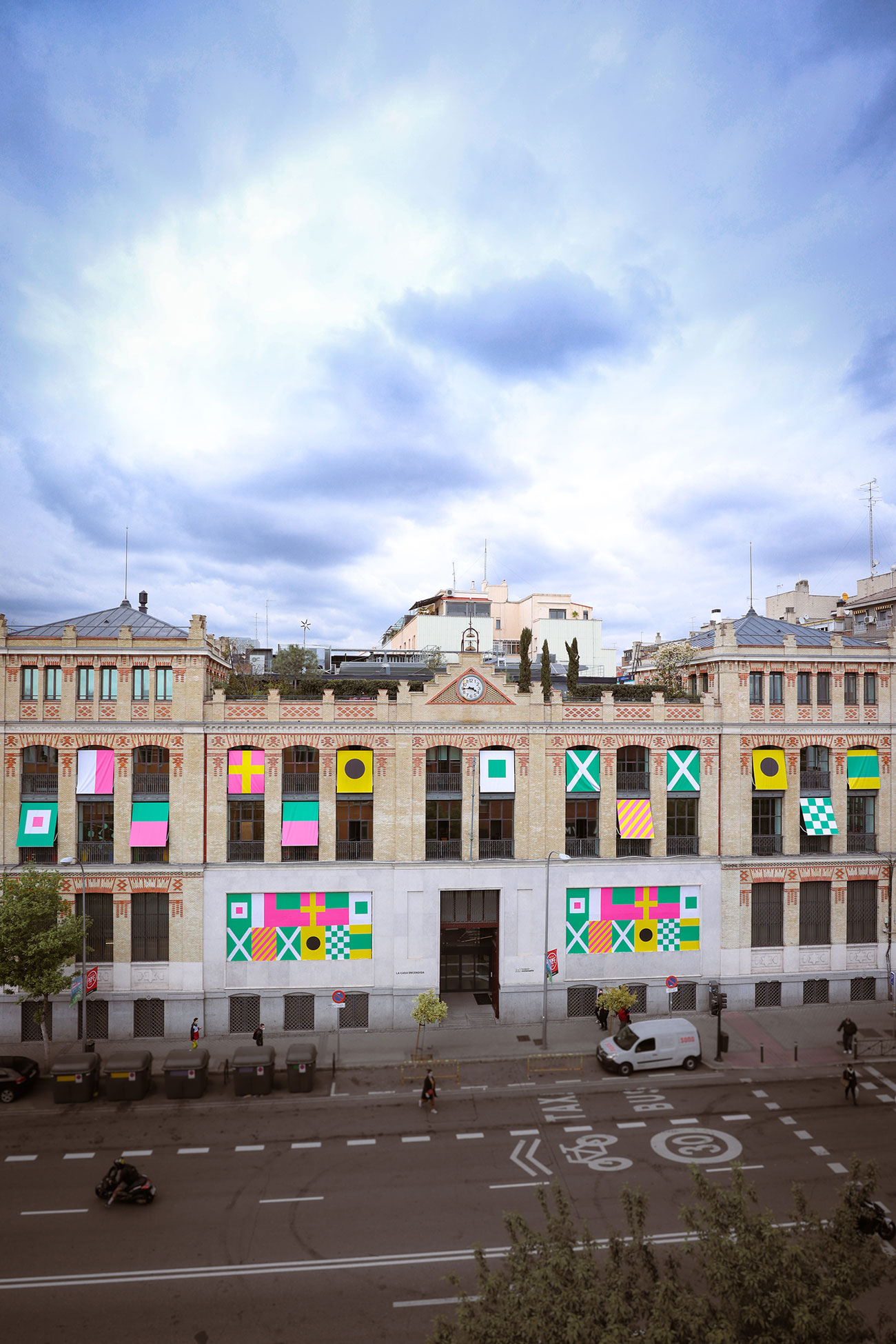Bobby Baker: Jars of Chutney
This exhibition introduces audiences to the extraordinary universe of British artist Bobby Baker and the everyday references and sense of humour that form the pivots around which most of her work revolves.
In her famous performance Drawing on a Mother’s Experience (1988), Bobby Baker talked about how during her first months as a mother in charge of the daily running of the house, one of her greatest pleasures was making preserves, especially jars of chutney. As she explained to the audience, for her this task represented the gratification of being productive, the value of preserving something, the practicality of being beneficial for the household economy —a constant worry— and the aesthetic pleasure of admiring the finished jars lined up on the shelf. The title of the show curated by Clara Zarza, Jars of Chutney, echoes this anecdote which condenses the tensions and multiple layers of meaning hidden in little household chores and daily gestures, a central theme in the artist’s work.
Using direct, raw and yet eminently humorous language, Baker's performances, installations and drawings explore the everyday life and privacy of an individual who occupies different social spaces: a British middle-class woman/mother/artist/psychiatric patient/cancer sufferer. The career which the British artist has carved out over the course of forty years reflects the historical context of the 1970s and 1980s, decades marked by post-structuralism, with its analysis of the role of culture in the construction of the individual, and feminist theory, with its reclaiming of the personal as political, as an arena where power relations are played out. Although Baker's work in this particular context has gained remarkable international acclaim, the themes and the configuration of her works continue to be described as ‘outsider’. This identification of the artist's subject matter as marginal has not only conditioned the reception of her work but also its presence in the canonical spaces of the art world. She has never exhibited in Spain and her work remains largely unknown here.
Jars of Chutney aims to offer an insight into the richness and relevance of Baker’s work. Furthermore, it provides the audience with the first opportunity to explore the series of drawings, watercolours and prints she has systematically produced throughout her career, in the broadest context of her artistic practice. The show includes series that have never been exhibited, such as Timed Drawings —sketchbooks produced by an artist, mother and housewife with very little time on her hands— and well-known works such as the acclaimed Diary Drawings, a selection from the more than 700 extraordinary drawings made by the artist over the course of eleven years, starting in 1997 when she became a patient at a day centre following a mental health crisis. Baker will also present two of her most recent works: the beginning of her project Epic Domestic, which stems from the idea of creating a Domestic Revolutionary Party; and her performance Drawing on a (Grand) Mother’s Experience, an updated version of the earlier performance Drawing on a Mother’s Experience, in which she offers reflections on the experience of becoming a mother, as relevant today as back then but now viewed with the privilege conferred by age.
The observation and representation of daily life —socially identified as private insofar as it is considered to be irrelevant or taboo— is a practice that is beginning to acquire greater visibility today but has yet to fully shake off these stigmas. (Auto) biographies, memoirs, self-portraits and the representation of the artist's environment are present in western tradition since the Renaissance. Nevertheless, these practices were only accepted as long as they offered, a public value, whether exemplary or tragic, without falling in the irrelevance of the everyday or the vanity of narcissism, and as long as they did not embarrass the viewer in their a lack of modesty. Bobby Baker's work plays with the limits of appropriateness and repeatedly transgresses these conventions through the details and anecdotes she includes in her representation of maternity, family relationships, the politics of caregiving and the tensions between domestic and professional work. She also exposes things that should not be exhibited in public, things that offer a crude, anti-heroic or taboo image of physical and mental illness. However, her work is far from offering a personal narrative with autobiographical undertones or allowing us to peek into her private world for the mere pleasure of gazing at someone else's life, on the contrary, Baker's work provides the framework and the material for a wider and more fundamental reflection about power and the importance hidden in the minutiae of everyday life, in the aim of transforming the perception we have of ourselves and our relationship with the world around us.



